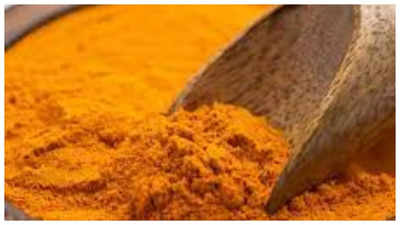Turmeric has been part of traditional medicine and culinary practices for centuries. This vibrant yellow spice, particularly in Ayurveda, turmeric owes its fame to curcumin, its active compound, which is responsible for its distinct colour and numerous health benefits. It stands out for its antioxidant and anti-inflammatory properties, making it an essential part of many health-conscious diets.
Is turmeric harmful?
While turmeric has numerous health benefits, excessive consumption can lead to potential side effects. Here are six side effects caused by the overconsumption of turmeric:
Digestive issues
Turmeric is known to boost bile production and can increase stomach acid levels. According to Ayurveda, too much turmeric can overstimulate the digestive fire, especially in individuals who already have a strong Agni (fire). For most people, this can aid in digestion, especially when it comes to breaking down fats. However, this increase in stomach acid can cause irritation in the digestive system for some individuals, particularly those with gastroesophageal reflux disease (GERD), acid reflux, or other gastrointestinal conditions.
Kidney stones
Turmeric contains oxalates, which are naturally occurring substances found in various plant-based foods. As per traditional Indian medicine, when consumed in excess, oxalates can bind with calcium in the body, forming calcium oxalate crystals, which are the most common type of kidney stones.
Blood-thinning effects
The Indian traditional practices indicate that turmeric may have anticoagulant (blood-thinning) effects. This can be risky for people on anticoagulant medications or those undergoing surgery.
Iron deficiency
Turmeric, particularly its active compound curcumin, can potentially inhibit the absorption of iron in the body. One study published in the Journal of Agricultural and Food Chemistry indicated that while turmeric has many health benefits, its high doses could have a negative effect on iron absorption. This effect could contribute to iron deficiency anemia in some individuals, especially when consumed in large quantities or over extended periods.
Lowered blood pressure
Turmeric’s active compound, curcumin, can lower the blood pressure. For individuals prone to low blood pressure or those on hypertension medication, this can lead to overly low blood pressure.
Headaches and dizziness
Some individuals experience side effects such as headaches and dizziness when consuming higher doses of curcumin, the active compound in turmeric. As per traditional Indian medicine, curcumin has a wide range of health benefits, including anti-inflammatory and antioxidant properties, its overconsumption, especially in supplements.
What is a normal dose?
It’s advisable to contain turmeric in your daily diet. According to John Hopkins Medicine, curcumin’s effectiveness is greatly enhanced when consumed with piperine, the active compound found in black pepper. A typical recommended dose for curcuminoids is between 500 to 2,000 milligrams of turmeric per day.
